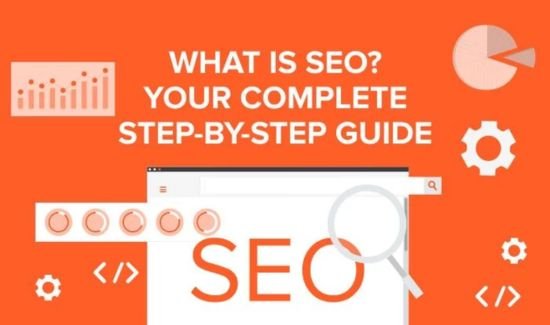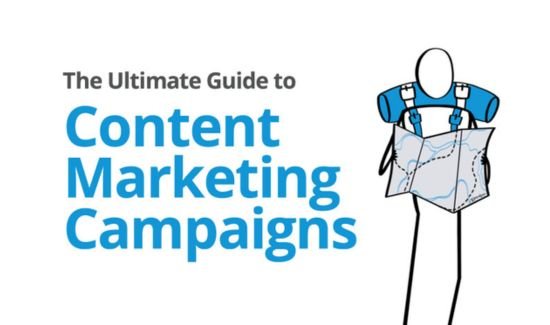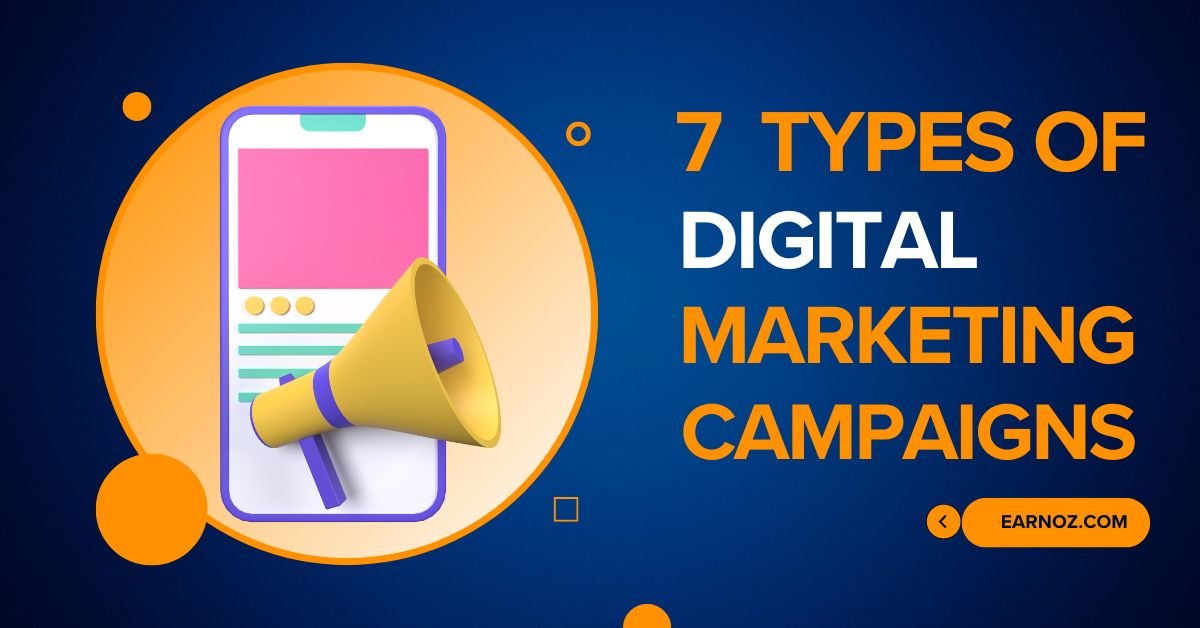In the current dynamic corporate environment, digital marketing is more important than ever. For small business owners and marketing managers, understanding the different types of digital marketing campaigns can be a game-changer.
This blog post will guide you through different types of digital marketing campaigns, helping you to make informed decisions and effectively reach your target audience.
What are Digital Marketing Campaigns?
Campaigns for digital marketing are planned initiatives meant to use digital platforms to advertise a brand, service, or product. To reach potential clients, these ads make use of digital technology and the internet. They are made to accomplish particular objectives, including raising sales, improving website traffic, or raising brand exposure.
Why Digital Marketing Matters Today
In the current corporate landscape, digital marketing is essential. Conventional strategies such as billboards and print advertisements are insufficient today. Higher ROI, quantifiable outcomes, and precise targeting are all provided by digital marketing. It’s a reasonably priced means for small businesses to compete with larger brands and reach a wide audience.
Overview of the 7 Types of Digital Marketing Campaigns
Below is an explanation of each 7 different types of different types of digital marketing campaigns.

1. Search Engine Optimization (SEO) Campaigns
A planned plan to increase a website’s exposure on search engines such as Google is called an SEO campaign. It entails a variety of methods and strategies intended to raise organic traffic, improve search engine ranks, and eventually spur business expansion.
Benefits of SEO Campaigns
There are several advantages for firms to implement an SEO campaign. These consist of better user experience, more reputation and confidence, increased internet exposure, and increased website traffic. More leads, conversions, and income are possible outcomes for small business owners and digital marketers thanks to these benefits.
Key Strategies in SEO Campaigns
To run a successful SEO campaign, digital marketers and business owners should focus on several key strategies:
- Keyword Research: The cornerstone of every SEO effort is locating pertinent keywords that prospective clients are using to seek. SEMrush and Google Keyword Planner are two excellent tools for this procedure.
- Enhancing your website’s text, headers, and meta tags to make them more search-engine friendly is known as on-page optimization. It’s critical to make sure your material is educational, interesting, and in line with your goal keywords.
- Link building: Gaining authoritative backlinks from respectable websites raises the authority and search engine rankings of your website. Content marketing, collaborations, and guest blogging are effective ways to do this.

2. Pay-Per-Click (PPC) Campaigns
Digital marketers that use pay-per-click (PPC) campaigns must pay a charge each time one of their ads is clicked. By placing bids on terms associated with their goods or services, this strategy enables companies to increase the volume of targeted visitors to their websites.
Benefits and Shared Platforms
PPC campaigns have some benefits, including precision targeting, instant visibility, and quantifiable outcomes. Google Ads, which commands the majority of the market, and Bing Ads, which offers access to a distinct target niche, are important platforms for PPC campaigns. Strong tools are available on both platforms for campaign performance tracking and optimization.

3. Social Media Marketing Campaigns
Campaigns using social media to reach target audiences make use of sites like Facebook, Instagram, and LinkedIn. Every site has something special to offer, including the wide range of advertising choices on Facebook, the aesthetic appeal of Instagram, and the professional network on LinkedIn.
Advantages and Engagement Techniques
Successful campaigns may increase engagement and brand awareness. Regular publishing, employing top-notch images, and utilizing analytics to maximize success are some strategies. Building a devoted following requires fast replies and interesting information.

4. Content Marketing Campaigns
There is a wide range of material that you may produce in the field of content marketing. Among the best and most adaptable are infographics, movies, and blogs. These formats may be employed across various platforms to increase reach and adapt to a variety of consumer preferences.
Importance of Quality Content and Storytelling
Strong content is the foundation of any effective marketing initiative. Creating a compelling narrative for your audience not only grabs their interest but also fosters loyalty and trust. Digital marketers may establish significant relationships with their target audience and increase engagement and conversions by prioritizing high-quality content.

5. Email Marketing Campaigns
Email marketing campaigns have several benefits, such as the ability to communicate directly with your audience, a high return on investment, and tailored interaction possibilities. It’s among the most economical methods of reaching a big audience without sacrificing personalization.
Techniques for Creating and Managing Successful Email Lists
Providing worthwhile incentives for signups is the first step toward creating a successful email list. Make sure your emails stand out by using attention-grabbing styles and captivating subject lines. Customization and obvious calls to action may greatly increase the effectiveness of your campaign.

6. Influencer Marketing Campaigns
Influencer marketing strategies use celebrities on social media to advertise goods and services. By utilizing the influencer’s well-established following and credibility, these campaigns have the potential to greatly increase brand visibility and revenue.
Selecting the Proper Influencers and Assessing Their Effect
Analyzing influencers’ audiences, engagement levels, and compatibility with your business values are crucial steps in choosing the correct ones. Use analytics tools to analyze metrics like engagement, conversions, and total ROI to quantify the effect.

7. Affiliate Marketing Campaigns
Affiliate marketing initiatives entail collaborating with people or companies who advertise your goods or services in return for a cut of the revenue. This is an economical growth strategy that makes use of the marketers’ audience to increase revenue and brand awareness.
Creating and overseeing affiliate networks
Selecting appropriate affiliates and giving them the required marketing materials is the first step in setting up a successful affiliate network. To maintain your affiliates’ motivation and engagement, periodically review performance data and offer rewards. This guarantees continued development and prosperity.
Best Practices for Planning and Executing Digital Marketing Campaigns
Best Practices for Planning and Executing Digital Marketing Campaigns is crucial for achieving your business goals.
Understanding Your Target Audience
To have a successful marketing, you must first understand your target audience. To learn about their tastes, habits, and pain areas, conduct market research. With this information, you may better craft campaigns that appeal to your target audience.
Assessing Business Goals and Objectives
Various campaigns have distinct objectives. Setting up your campaigns to support your company goals is crucial, regardless of your goals—raising sales, generating leads, or increasing brand recognition.
Budget Considerations
Budget is a significant factor in campaign selection. Evaluate the costs associated with different types of digital marketing campaigns and allocate your budget accordingly. Remember, the most expensive option is not always the best.
Industry-Specific Strategies
Certain sorts of campaigns may be more advantageous for certain sectors. For instance, PPC advertising may be more successful for e-commerce enterprises, but content marketing may be more advantageous for B2B organizations. To make your plan more effective, research industry best practices.
Measuring the Success of Your Digital Marketing Campaigns
Tracking and analyzing your campaigns is crucial for understanding their effectiveness.
Key Performance Indicators (KPIs)
Determine which KPIs—like website traffic, conversion rates, and customer engagement—are most important to your company. You may evaluate the efficacy of your efforts with the use of these measures.
Tools for Measuring Performance
Use tools like as HubSpot, SEMrush, and Google Analytics to monitor and evaluate the effectiveness of your campaigns. These resources offer insightful data on the actions of your target audience and the efficacy of your campaigns.
The Importance of A/B Testing
Comparing two iterations of a marketing element to see whether one works better is known as A/B testing. This technique finds the best techniques to help you optimize your marketing.
Reporting and Presenting Results
Create comprehensive reports to present your campaign results to stakeholders. Highlight key findings, successes, and areas for improvement to demonstrate the value of your digital marketing efforts.
Conclusion and Recommendations
In conclusion, it takes constant learning and flexibility to stay ahead in the ever-changing field of digital marketing. The major ideas covered emphasize how crucial it is to take advantage of emerging trends and technology to stay competitive. Updating their knowledge and abilities should be a top priority for marketing students, small company owners, and digital marketers. Please get in touch if you need any further resources or individualized advice.
If you want to know about the advantages of b2c e-commerce then read this article: The Game-Changing 9 Advantages of B2C E-Commerce. If you want to know about how to earn by teaching the Quran online then read this article: The Ultimate Guide to Teach The Quran Online and Earn Money
Frequently Asked Questions (FAQs)
How does PPC advertising work?
When you use pay-per-click (PPC) advertising, you must fork out money each time a user clicks on your link. When consumers search for relevant terms, these adverts appear on search engines or other platforms. Bringing in targeted visitors to your website is the aim.
What types of content are effective in content marketing?
In content marketing, blogs, videos, infographics, eBooks, and podcasts are among the most effective content kinds. To enhance reach and engagement, each kind may be utilized across several platforms and cater to distinct audience preferences.
How can I build an effective email marketing list?
Provide worthwhile incentives for sign-ups, such as discounts, freebies, or access to unique material, to develop a successful email marketing list. To attract subscribers, include opt-in forms on your website and social media accounts.
How do I choose the right influencers for my campaign?
The demographics of their audience, engagement levels, caliber of their material, and compatibility with your company values are all important considerations when selecting influencers. For greater advertising outcomes, make sure they truly connect with their following.


2 thoughts on “7 Different Types of Digital Marketing Campaigns”